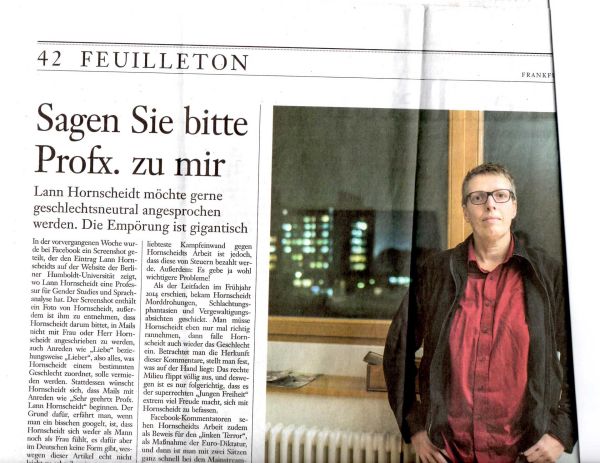The Problems of Deception Part 2
The Problems of Deception part 2
The history of contemporary cross-dressing must start with Bruce Jenner, who won the gold medal in the Decathlon at the 1976 Summer Olympics. Jenner became a household name in those days and joined other champion athletes of that era, like Mohammad Ali, Chris Evert Lloyd, and gymnist Mary Lou Retton, on the boxes of Wheaties breakfast-cereal.
Then, in 2015, Jenner decided to have a sex-change and become a woman. Wikipedia declares Jenner the most important trans-gender person in the world, although most people, if speaking honestly, would say that Caitlyn can't hold a candle to the handsome Bruce.
The contemporary "Caitlyn" Jenner on the left/ the old Bruce Jenner, with former wife Kris Kardashian, on the right
The second most-important sex-change operation is Bradley Manning, who now goes by the name Chelsea. Manning served in the U. S. Army as an intelligence-analyst, until the Army court-martialed him and imprisoned him for passing military secrets to Julian Assange. Assange subsequently published them on his website Wikileaks. President Barack Obama paroled Manning before he left office, after Manning had served only 7 years of his 35-year sentence.
Intelligence Analyst, Private Bradley Manning, left/Contemporary Chelsea Manning, right
I resent Manning very much for what he did, and the Obama administration for excusing his misdeeds, but I also feel sorry for Manning, the abused son of alcoholic parents, who was born wtih fetal-alcohol syndrome. I just wish he had focused his anger on more appropriate targets like his parents, rather than blame the nation for his personal problems.
But while some men want to live as women, and visa versa, some people want to do away with the gender thing altogether. No men, no women, just unisex people. A few people have made a thing of their lack of gender—floating the proposal to do away with the distinctions and see how society reacts to it.
In Germany, for instance, the Frankfurter Allgemeine newspaper published an article in its November 16, 2014 issue about Professor Lann Hornscheidt at Humboldt University in Berlin, who requests that people address him in gender-neutral language, as "Profx. Hornscheidt," since he does not feel exclusively like a man or a woman, and feels that he should not have to choose. At the same time, he does make an effort to include himself as a standard leftist: anti-racism, anti-sexism, anti-capitalist.
But Profx. Hornscheidt is, in fact, a woman. She was born Antje Hornscheidt in Velbert, in the German provice of Rhineland-Westphalia. The photo of this tall, rangy person in male clothing and short brown hair will leave you guessing; but no matter what anyone says about tolerance, you will hazard a guess, whether Hornscheidt has a penis or a vagina. You will wait until he exposes himself, so to speak.
The Tageszeitung (taz) of Berlin also published an article about Hornscheidt in its May 25, 2015 issue. Taz also conducted an nterview that went off uneventfully--in the "please" and "thank you" tradition of polite, intelligent discourse, but taz titled the interview "Den Blick auf Geschlechter verwirren," or "Confusing the Boundaries of Gender." One has to ask, what is the point of Hornscheidt's efforts, clarity?—that is to say transparency, or obfuscation?
I would express the concern more starkly—not a lack of transparency but deliberate deception. Put the problem in a pedestrian, parental context, you bring your daughter to Profx. Hornscheidt's office, and you figure out that Hornscheidt—the unisex-spiel and the tall mannishness aside—is probably a woman and therefore a lesbian. What do you do? What recourse do you have? Having to deal with deception by someone in authority, who might also have predatory intentions, erodes your trust in the system.
I wonder how the historic namesake of Humboldt University, Alexander von Humboldt, an eminent scientist and naturalist, would respond to Hornscheidt. She changed her name and professional title after attending an "Arbeitsgruppe" (working group) titled "Feministisch Sprachhandeln" ("Feminist Speech Dynamics"). So, not just a conference about this-theory or that-hypothesis, but organizing with a political agenda.
The novelist F. Scott Fitzgerald weighs-in on gender-oriented deception in his novel Tender is the Night, published in 1933. The novel concerns an American ex-pat couple living in France—Nicole and Dick Diver—and the people around them. They include a petty-aristo Englishwoman Lady Caroline Sibley-Biers and fellow-Americans Mary North and her husband Abe. One night at 2:00 a.m., a phone-call from the jail in Antibes awakens Dick Diver. The jailer tells him that he needs to come to the jail to post bail for someone, and when he arrives, he gets the surprise of his life:
Mary North and Lady Caroline, dressed in the costume of French sailors, lounged on a bench outside the two dingy cells. . . . "It was merely a lark," said Lady Caroline with scorn. "We were pretending to be sailors on leave, and we picked up two silly girls. . . ." The lack, in Lady Caroline's face, of any sense of evil, except the evil wrought by cowardly Provençal girls and stupid police, confounded him.
Lady Caroline reacted, writes Scott Fitzgerald, with the “outraged air of a Briton who momentarily expected the Mediterranean Fleet to steam up to her assistance." What else can we expect from an imperious deceiver, except that a superior force will support her deception? Lady Caroline doesn't want anyone to thwart her Trojan Horse.




